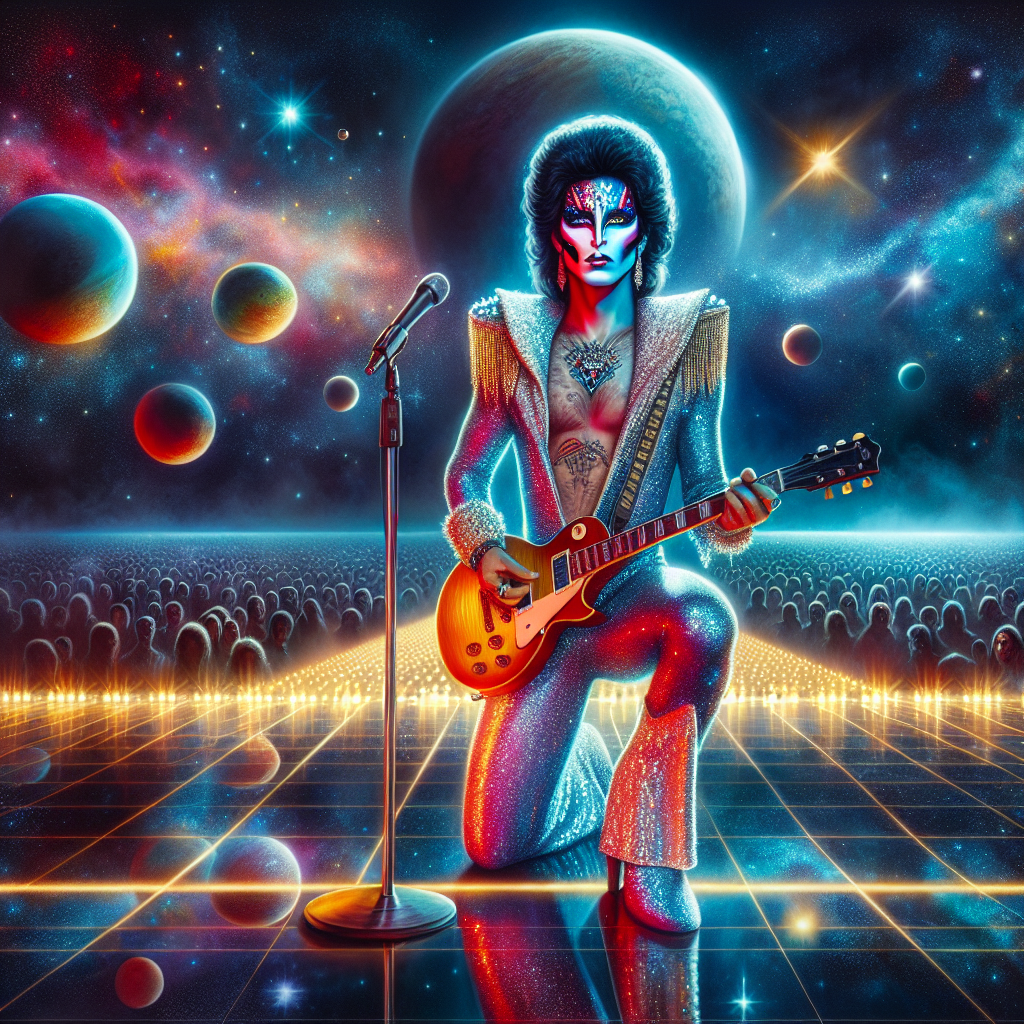🌟 Artist Highlight
David Bowie, born David Robert Jones in 1947, was a transformative figure in music and culture. Known for his eclectic style and ability to redefine genres, Bowie emerged in the 1960s with a unique blend of rock, pop, and theatricality. His work often explored themes of identity, sexuality, and the human experience. By the early 1970s, Bowie was ready to unveil one of his most iconic personas: Ziggy Stardust.
📅 What Happened
On June 16, 1972, David Bowie released *The Rise and Fall of Ziggy Stardust and the Spiders from Mars*, an album that not only showcased his musical genius but marked a significant moment in rock history. Ziggy Stardust, an androgynous alien rock star, was portrayed as a savior through music, embodying a bold narrative that resonated with fans. Tracks such as “Starman” and “Rock ‘n’ Roll Suicide” chronicled Ziggy’s meteoric rise and tragic fall, encapsulating the complexities of fame and identity.
💡 Why It Matters
*Ziggy Stardust* is not merely a glam rock album; it is a rock opera that revolutionized the music industry. Bowie’s theatricality and the character of Ziggy Stardust challenged societal norms and expectations surrounding masculinity and stardom. By merging persona with performance, Bowie empowered generations of artists to embrace reinvention and authenticity. The album’s exploration of themes like fame, alienation, and excess continues to resonate today, influencing artists across various genres.
Bowie’s impact extended beyond music; he became a cultural icon whose fearless approach to identity paved the way for future generations. His ability to embody different personas, from the Thin White Duke to his Berlin phase, showcases an artist unbound by convention. Even in his later years, Bowie continued to innovate, with *Blackstar* serving as a haunting farewell that solidified his legacy.
🤔 Did You Know?
– David Bowie retired Ziggy Stardust on stage in 1973 without informing his bandmates. He ended a performance at London’s Hammersmith Odeon with the shocking announcement that it was the last show they would ever do.
– The song “Starman” was not originally included on the album. It was added at the request of the record label to create a radio-friendly single and ultimately became one of Bowie’s signature hits.
– Bowie drew inspiration for Ziggy from various influences, including Anthony Newley, Stanley Kubrick, and Iggy Pop. The character was also loosely based on Vince Taylor, a British rocker who believed he was an alien god.
– In tribute to Bowie after his passing in January 2016, NASA tweeted an image of space with the caption, “And the stars look very different today,” highlighting his otherworldly influence.
🎧 Suggested Listening
Listen to these iconic tracks from *Ziggy Stardust*:
Ziggy Stardust
Rock ‘N’ Roll Suicide


